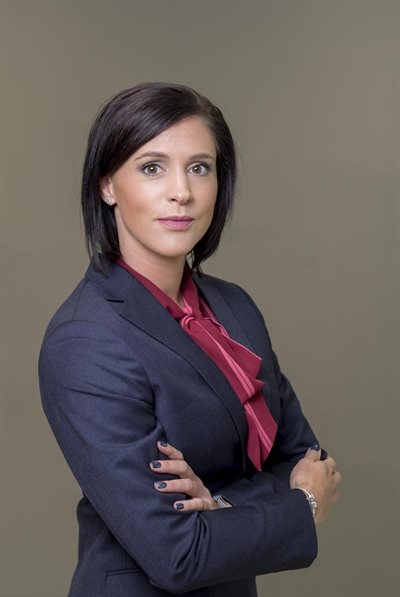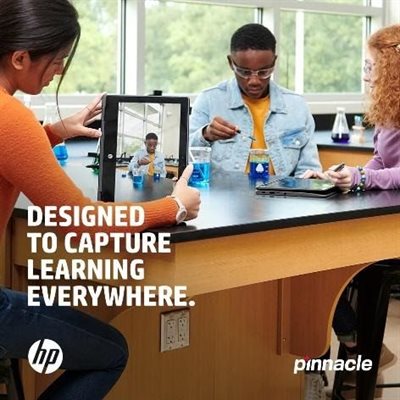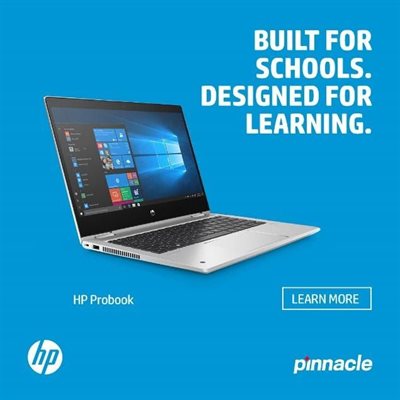Education sector catapulted into digital transformation
The Covid-19 pandemic, the world over saw many industries and organisations thrust into making rapid changes to how they conduct everyday business and put a spotlight on the technologies available to do so. And the education sector was massively impacted by this too.

Natasha Davies: Pinnacle education portfolio manager
South Africa had many educational challenges before the pandemic and the tactical implementation of technology into classrooms was only beginning to really make a play in certain tiers.
With an addressable market of some 23,500 schools and 12.9 million students in South Africa, as well as over 400,000 teachers in the K12 system, it is encouraging that the South African government is driving multiple initiatives from the National Student Device project. This rollout plan to make devices accessible to teachers and learners alike will be more important than ever.
The goal of the project is to provide a digital workbook or tablet to every school child over the next few years, with the aim of moving to paperless classrooms and encouraging literacy enablement by allowing children to read in their mother tongue before moving to English.
This opportunity, suggests Natasha Davies, Pinnacle’s education portfolio manager, only grows further when considering the tertiary education environment, where there are 26 universities and 677 TVET colleges in SA to equip. Considering the ever-changing landscape of the South African education system, as well as the current Covid-19 situation, she adds that now is the ideal time for resellers to upskill and capitalise on the digital revolution and be part of the drive to get a device in every learner’s hands.

“As long term partners of HP Inc (HPI), Pinnacle play a vital role in the roll out of the HPI Education offering to the South African education industry, something which is differentiated by the fact that the solutions offered are not built around specific devices. Instead, they are aligned to the learning experiences of students and educators, with a strong focus on the education value chain and segmentation of the individual links needed to deliver the right solution and devices to assist institutions in achieving their learning objectives and desired outcomes,” she explains.
We aim to make education one of the most basic human rights by providing accessibility to the masses through the implementation of build best practice that creates end-to-end solutions suitable for all budgets.
Davies is quick to point out that there are numerous challenges facing classroom digitisation, not the least of which are students that don’t have access to technology or connectivity and therefore are computer illiterate. In addition, the education sector itself is not always ready for adoption and deployment of technology within the classroom – but this has been forced to change, and the need is even greater.
“To this end, we have digital solution offerings designed to address the shortcoming of technology in the classroom and home environment, enabling students to build the confidence to engage on a different level through technology.”
“We are also aware that a critical part of any digital education initiative is that of educating the educator. We simply must ensure teachers are familiar with any technology implemented before they begin using it in the classroom. If educators are more comfortable with the solution, this is conveyed in their actions to the children, who will in turn have greater confidence in the technology themselves.”
Ultimately, it is all about driving positive changes in the education environment. Understanding that there are very broad demographics and budgets involved, she says, Pinnacle works on a scalable approach to education solutions. In this way, it can help to bridge the gaps and get all learners, teachers and schools on the same level.
“Following the president’s Sona (State of the Nation) announcement, earlier this year, of a greater focus on the digital economy and the fourth industrial revolution (4IR), it is clear these are exciting times for the education environment. It is exciting for us too, as our partnership with HPI means that we have access to a range of already-proven global solutions that can be tweaked to suit SA’s own education requirements.”
“The main goal of Pinnacle’s education strategy is to make education accessible to everyone, by using the HPI offerings to build best practice, end-to-end solutions that allow for greater classroom interactivity and help to excite the learners – something we believe is critical in keeping them highly engaged. Innovation in education technology is stronger than ever, especially due to mobile devices, cloud technologies and virtual reality, and the time is thus right to adopt a holistic approach in regard to leveraging technology as an enabler to learning. Pinnacle, thanks to its carefully selected partners, strives to be the leader in creating and implementing this change,” concludes Davies.
